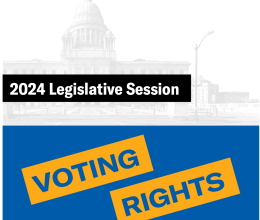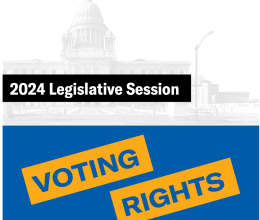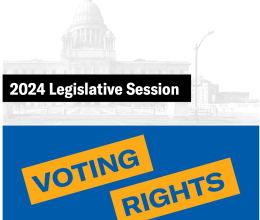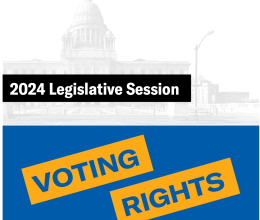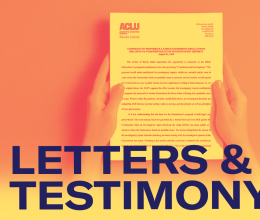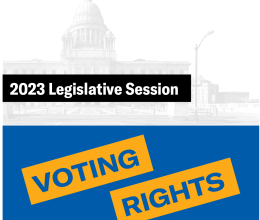The RI ACLU issued the following statement today in response to suggestions that the General Assembly pass a law requiring a state criminal background check for all candidates who are certified by the state Board of Elections to run for office in Rhode Island:
“Understandably, there has been a great deal of discussion and debate surrounding the disclosure of Rep. Daniel Gordon’s criminal record. However, proposals to require BCI checks of candidates raise a host of constitutional and policy concerns, and should be rejected.
“It is important to emphasize a few facts about the incidents leading to proposals like these. First, there is no allegation that Rep. Gordon’s criminal history disqualified him from running for office, or that he falsified documents in order to do so. A candidate’s past history – whether one is concerned about criminal records, past shady business dealings, personal foibles, questionable financial situations or a host of other pieces of background information – is something for political and party opponents, the media and other interested individuals or groups to inquire about and investigate during the course of a political campaign. Nothing appears to have prevented such inquiries in this instance.
“But state elections officials have no business demanding a BCI check as a condition of running for office, any more than they should be demanding access to a candidate’s divorce records, bank statements or Facebook account, which might actually yield voters much more useful information about the candidate’s character or background.
As for criminal records specifically, a candidate may have had an arrest record from decades ago for a minor offense, and may never have been convicted of the charge, or may have had it expunged as a young offender. A requirement like this could dissuade such a person from running for office. Obviously, if a political opponent roots out that information and decides to make it public, or if the candidate decides to preemptively release it, that is their prerogative. But giving the state the power to force the release of information in this way sets a dangerous precedent. The Rhode Island Constitution establishes the qualifications for office and the General Assembly simply should not take it upon itself to artificially shape the field of political contenders.”

